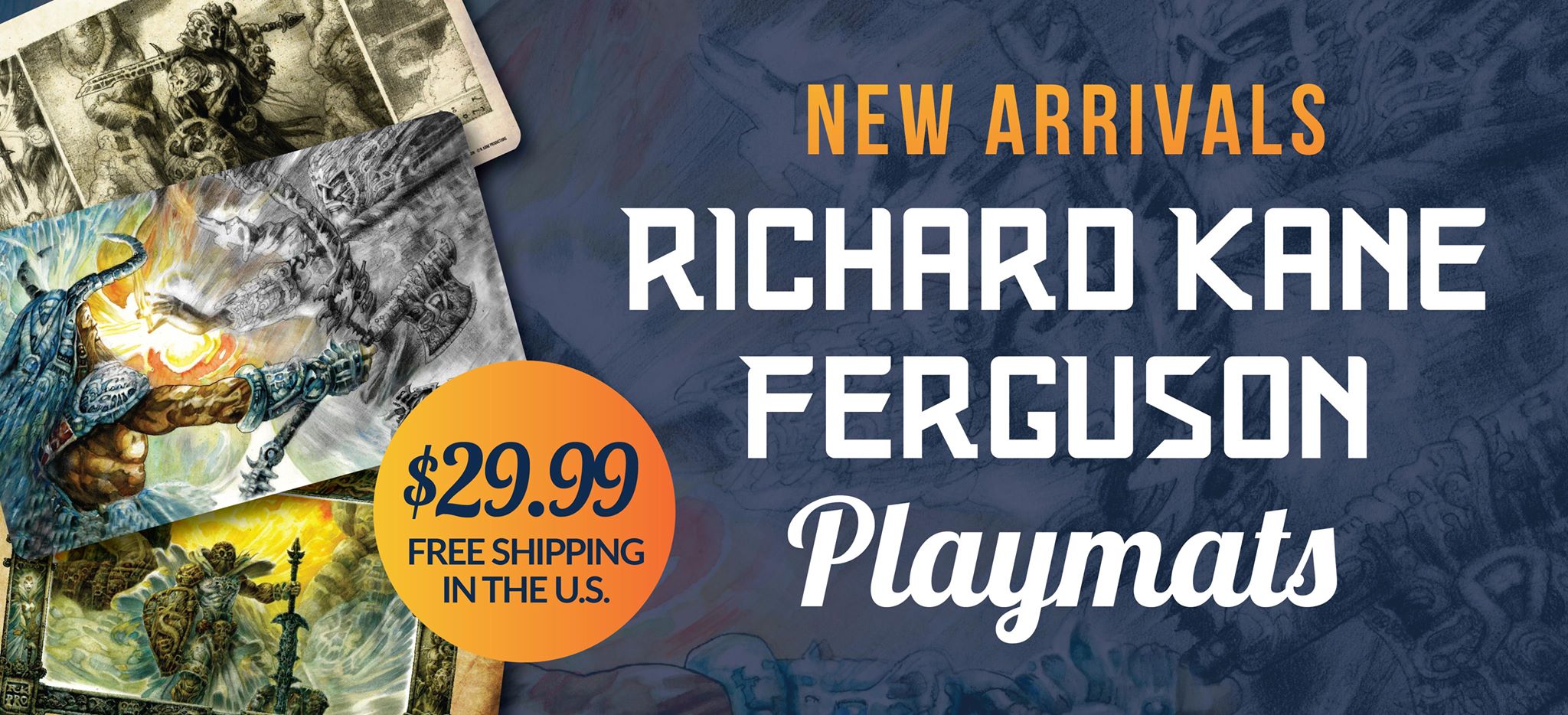Counters Company

Synopsis
Counters Company is a creature combo deck focused around Vizier of Remedies and its various combos, often put into play by Collected Company or Chord of Calling.
The deck, at first glance, appears to be a collection of creatures with unimpressive stats when compared to the other creature-oriented decks you’ll find in the Modern format. The whole of the deck is much larger than the sum of its parts, however, as the core cards in the deck; Vizier of Remedies, Devoted Druid, Kitchen Finks, and Viscera Seer work together to end the game.
SAMPLE DECKLIST
https://www.mtggoldfish.com/deck/1131547#paper
https://deckstats.net/decks/73728/976540-counters-company/en
Core Cards
There are three different combos within Counters Company. The first combo utilizes the cards; Vizier of Remedies, Viscera Seer, and Kitchen Finks. In order to “go off” all three of these cards must be in play, and you have to sacrifice the Kitchen Finks to Viscera Seer’s ability. Under normal conditions, the Kitchen Finks will enter the graveyard, its persist trigger will resolve, and the Kitchen Finks will enter the battlefield with a -1/-1 counter, preventing further resurrection. Alongside Vizier of Remedies, however, that -1/-1 counter will never be placed on the Kitchen Finks, allowing you to sacrifice and persist indefinitely. This loop nets two life and one scry every time it’s executed, giving the player infinite life and scries. If Kitchen Finks is replaced with Murderous Redcap, the combo instead nets two damage and one scry. Redcap has largely been left out of lists as infinite life is usually enough to win the game so the more expensive Redcap isn’t needed.
The second combo is a follow up to the first, but adds the card Anafenza, Kin-Tree Spirit to the mixture. Anafenza can replace Vizier of Remedies in the combo noted above, instead of Finks coming back without a -1/-1 counter, it comes back with one, but the Bolster trigger can go onto Finks and cancel the counter out, leaving it ready to be re-sacrificed. Anafenza also adds when it is on the field with Vizier as well during the combo. As you loop through the Vizier, Finks, Seer combo, with Anafenza’s presence, the Kin-Tree Spirit will trigger as the Kitchen Finks enters the battlefield, putting a bolster trigger on the stack. If you run through this loop over and over, you can put as many +1/+1 counters as you’d like on the stack, then disperse them among your team. It’s important that you allow the bolster triggers to accumulate on the stack, otherwise they will buff the Kitchen Finks and disappear as he is removed from the field, during the loop.
The third combo is the fastest combo the deck provides, yet it’s almost independent from the other two, as it focuses on Vizier of Remedies and Devoted Druid. In order to “go off” with this combo, you need to pair a Devoted Druid, without summoning sickness, with a Vizier of Remedies. Under normal circumstances, a Devoted Druid taps for one green mana, but is able to tap for a second green mana, in the same turn, if you untap Devoted Druid and apply a -1/-1 counter to it. In the presence of Vizier of Remedies, however, the Devoted Druid won’t apply that counter, thus allowing it to tap and untap itself indefinitely and produce arbitrarily large amount of green mana. When you have infinite green mana, there are many ways to end the game. The common solutions are Walking Ballista, Rhonas, the Indomitable, Bloodrite Invoker or Duskwatch Recruiter. Duskwatch Recruiter and Walking Ballista are the more popular options. Note with Duskwatch Recruiter, it draws all of the creatures in your deck. You need to have one of the other options in your deck to finish off the game.
Support Cards
The combos that the deck produces are powerful, but they do need specific cards to function. In order to add consistency in the combo, the deck assembles its pieces with the help of Collected Company and Chord of Calling.Collected Company gives the deck a 2 for 1 and gives you more selection. Chord of Calling is more resource intensive but finds the specific piece needed.
Both of these add an instant speed component to a traditionally sorcery speed strategy. Acting at Instant speed is obviously a benefit, but it is extenuated when you have infinite combos in your deck. Holding up mana puts the fear into the opponent, which can force them to leave mana open, which can crucially disrupt their gameplan. Leveraging this fear is really important and part of what made Splinter Twin combo devastating.
In addition to these spells, creatures like Eternal Witness and Renegade Rallier add redundancy to the combo. Eternal Witness grabs used Collected Companies and Chord of Callings, from the graveyard, allowing the pilot to continue assembling the combo. Renegade Rallier rebuys destroyed combo pieces and can also act as acceleration returning a fetchland to play.
Tidehollow Sculler is another useful tool, within this version of the deck, that allows the pilot to check if the coast is clear to combo off, disrupt the opponent’s combo, or help grind an opponent out of available removal.
Birds of Paradise and Noble Hierarch add acceleration to the deck while being hits off of Collected Company and bodies to get buffed by Gavony Township or Anafenza, Kin-Tree Spirit. Birds of Paradise can act as a flying chump blocker, which is a nice bonus in a deck that has a difficult time answering fliers. Noble Hierarch’s Exalted can allow for some chip damage early in the game and help create better attacks on a crowded board.
The deck can have access to a bounty of singleton Chord of Calling targets. These are usually cards that are great in a specific matchup or style of matchup. These targets generally include some amount of Orzhov Pontiff, Qasali Pridemage, Scavenging Ooze, Spellskite, Shalai, Voice of Plenty, Selfless Spirit, Sin Collector, Burrenton Forge-Tender, Linvala, Keeper of Silence, Kataki, War's Wage and Eidolon of Rhetoric. Traditionally most of these cards end up in the sideboard but this is a huge part of the identity of the deck and one of its biggest strengths.
Mana Base
Traditionally, Counter Company’s mana-base focuses on the colors green/white with a splash of black mana. The amount of black mana used, however, is often volatile, reflecting the pilot’s flex spot choices. The list above is fairly black-mana intensive, thus it adds Blooming Marshes to help meet its demand for black but lists can also play Razorverge Thicket.
In terms of utility lands, most lists run 2 Horizon Canopies and 2 Gavony Townships. The two Horizon Canopies help mitigate mana flooding and assist in digging for combo or interaction. The 2 Gavony Townships help switch up game plans, in a pinch, from combo into midrange. Turning your mopey creatures into large beaters, if the situation demands it. It also has great synergy with persist creatures like Kitchen Finks.
Sideboarding
When sideboarding for Counters Company, you should ask yourself if you’re more likely to win through a combo or grinding with value creatures and Collected Company. As a general rule, however, you’re going to grind against decks that are heavy on removal spells and combo against decks that aren’t looking to interact.
Against the heavier removal spell decks, you can cut on non-Finks combo pieces, mana dorks and trim on mana creatures. If you're opponent has large beaters like Tarmogoyf or Scavenging Ooze, you want to sideboard in Path to Exile.
Against the decks where you are trying to race them, you have two options: Find a hate card for their deck via Chord of Calling or combo them out before they kill you. In these matchups, you can cut any of your maindeck hate cards like Scavenging Ooze or value cards like Eternal Witness and add more lock pieces or extra disruption. In these matchups, you want to make your deck as leans as possible so don't be afraid of cutting most of the Eternal Witness or even *gasp* a Collected Company or two.
Strengths
Counters Company can kill on Turn 3, the critical turn for Modern. Killing on Turn 3 means that matchups can only be so bad because there is always the out of comboing the opponent ahead of schedule.
Counters Company is one of the most flexible decks in the format. If any matchup becomes an issue, it is time to fire up Gatherer and find the perfect answer. Cards like Intrepid Hero, Big Game Hunter, Yixlid Jailer, Anafenza, the Foremost, Pharika, God of Affliction, Sigarda, Host of Herons, Aven Mindcensor, Chameleon Colossus, Devout Lightcaster, Ethersworn Canonist, Spirit of the Labyrinth, and Phyrexian Revoker. These are all cards that have been worthy of a sideboard slot in the past and could be useful again, not to mention the 1 of's already in the decklist above. This flexibility assures that the deck can be modified to matchup with whatever the format presents.
The flexibility of the deck doesn't just apply to being able to play a bevy of weird singleton Chord targets. In postboard matchups against the more disruptive decks, Company can trim heavily on its combo pieces and become more value oriented with looping Eternal Witnesses, Kitchen Finks beatdowns and Gavony Township activations. Even though Vizier of Remedies is not great in the disruptive matchups, it is still worth keeping a copy in your deck in case you have the opportunity to search it out with Chord to set up a combo.
Counters Company has a great matchup against ground-based aggressive decks due to 4 Kitchen Finks and some number of Voice of Resurgence. Decks like Zoo, Burn, Humans, and Bogles are traditionally great matchups.
Weaknesses
Chord of Calling is a resource intensive card and can be really bad against discard decks like Grixis Death's Shadow and Jund. These matchups tend to be okay but your game 1 win percentage usually suffers from drawing the less than optimal Chord of Calling.
Big mana decks like Tron and Scapeshift tend to be difficult matchups. Company has a hard time putting a fast enough clock on them and Kitchen FInks based combos don't beat Tron. Scapeshift usually has cards like Anger of the Gods or Sweltering Suns, which can make it even tougher. After sideboarding, there a few solid options in the sideboard but nothing back breaking enough to totally hamstring them.
Spell based combo like Ad Nauseam and Storm tend to be really close matchups as well. They are usually too fast and have just enough interaction to keep you from comboing. Unlike against the big mana decks, the sideboard options for these decks can be backbreaking. Eidolon of Rhetoric or Ethersworn Canonist are great against these decks and should be valued highly.
Decks like Jeskai Control can be tough to grind through and end up being close matchups. Their bevy of removal spells and 2 for 1's can be too much to fit through and is a pretty skill intensive matchup. This is definitely a matchup to be comfortable with.
The deck is very obnoxious to play on Magic Online due to its infinite combos. This is an odd weakness but it is a very real factor. Magic Online is where most decks get tuned and if the deck is underrepresented on Magic Online, it can slow down the iteration process. Brave souls do play the deck on MTGO but be prepared for lots of clicking and keeping track of the chess clock.
General Tips
Having mana acceleration, in your opening hand, is essential for the deck’s functioning. Being able to cast expensive spells like Collected Company and Chord of Calling early is one of the reasons a deck like Counters Company can function in the fast-paced modern meta. If your hand doesn’t have acceleration, then it’d be wise to take a mulligan to find a faster hand.
If you’re playing against a GBx deck, for instance, keep slower hands and avoid mulliganing, as the games will be slower and they’re likely to attack your hand in the first few turns. Otherwise, Mulligan aggressively.
Waiting to cast Chord of Calling can be invaluable because you gain more and more information every turn you wait. Saving Chord and then drawing a combo piece can be game winning. If you have nothing to use your mana on, you can always Chord for Eternal Witness and pick back up the Chord to get a free 2/1 into play.
Be actively aware of Chord of Calling’s math, it will affect how you should proceed with your turn. A good heuristic for if you want to cast creatures and then play Chord, the creatures effectively cost one less mana.
Kitchen Finks + Gavony Township provides excellent value as the Township resets Kitchen Finks because the original -1/-1 counter and the +1/+1 counter offset.
Collected Company is indeed an instant but if the opponent is tapped out, it is okay to fire it off during your turn, especially if you have a combo piece in play.
Other Variations
Counters Company originally came to the scene as an Abzan list, similar to what has been shared above. Over time, however, Bant Counters Company has also made itself an established deck in the modern format. Bant Counters Company differs from Abzan Counters company in that it’s looking to interact more with the opponent. Bant allows the counters company deck to use powerful cards like Spell Queller, the KnightFall Combo (Retreat to Coralheim+Knight of the Reliquary), and unified will in order to give it a better match-up against a wide variety of decks. Abzan Counters Company does have a slight advantage over Bant Counters Company, because Abzan’s Combo may be invoked at instant speed and has a better match-up against aggressive/linear strategies.
The Future of Counters Company
Rooting for a deck with Collected Company is a winning proposition because every set has a bevy of 3 drops or less creatures. Every deck has options for new prints from a new set but toolbox creature decks have an even better chance.
Counters Company has existed in various forms dating back to the Birthing Pod versions. It will keep existing, it is flexible enough to adapt to metagame movements and is rewarded for experience. You'd be in good Company if you pick this deck up.





